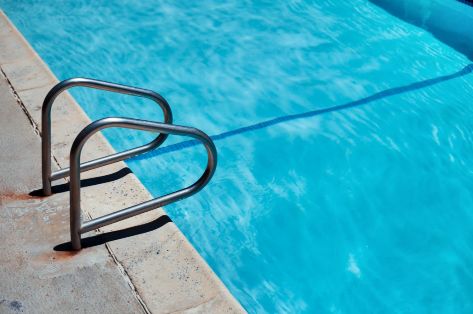It’s rare, but it happens. A happy afternoon spent splashing in a pool, or a moonlight dip in a hot tub can end in skin rashes, eye pain, or a nasty bug. Known as ‘recreational water illnesses’, these types of issues can be easily avoided with the correct water care routine. Here’s how to keep your pool safe.

What Are Recreational Water Illnesses?
Recreational water illnesses refer to any of a range of symptoms that can be picked up from unclean water. The most common symptom is diarrhoea, which can be caused by a variety of common germs including Cryptosporidium, Giardia, Shigella, Norovirus, and E. coli. A little of any of these bugs can go a long way, and a whole pool can quickly become infected.
How Is The Illness Spread?
Water is the ideal environment for germs to spread. For example, an accidental gulp of water with E. coli germs will catapult them straight into your own digestive system. Equally, some germs such as Norovirus will evaporate into the air around warm water, where they can be easily inhaled. Occasionally, the wrong mix of chemicals can intensify this process, creating a toxic breeding space for infection.
Who Is At Risk?
Anyone with a weakened immune system needs to be particularly vigilant around recreational water. This includes people who are receiving treatment for cancer or autoimmune disorders, for whom Cryptosporidium is a significant concern. Pregnant women, children, and babies are also potentially vulnerable, even though the health benefits of swimming and relaxation far outweigh the majority of the risks.
How Can I Protect My Water?
All that home swimming pools and hot tubs require to remain safe and clean is sensible maintenance. This sounds time-consuming, but in reality, it requires little more than a weekly water test to ensure that the chemicals are balanced. This is something that anyone can do and takes no more than a few minutes. Various other steps can be taken, such as ensuring that the pool has a secure cover. This will reduce the risk of germs entering the water from passing birds and wildlife.
Is There Anything Else I Can Do?
Arguably the most important element of your bi-annual maintenance routine should be a professional inspection of filtration units and motors. When filters are working properly, their capacity to clean the water is more than enough to guarantee water quality. As soon as a filtration unit starts to under-perform, contaminants can flow through the system uninterrupted. It is always advised to have a sand filter service carried out at least every 3 years to prevent this from happening. Today’s filtration systems also offer a host of innovations, such as UV screening that kills germs on the spot.
What Next?
At JB Elite, we believe in creating safe, healthy pool environments for everyone to enjoy. To find out more about improving your water quality, please get in touch with one of our pool maintenance and servicing team.

